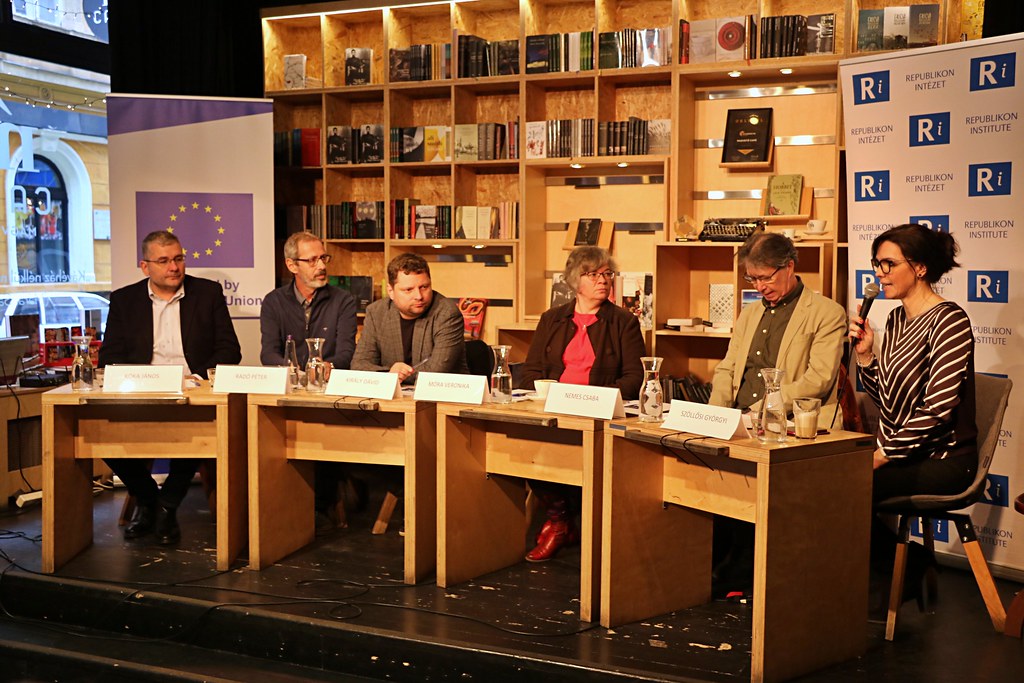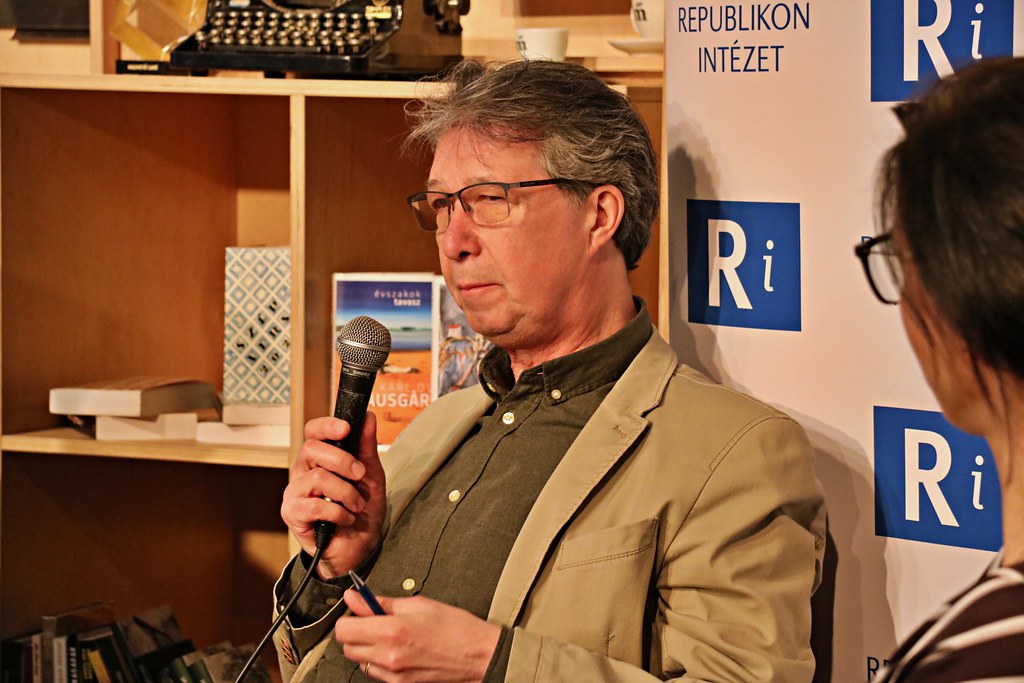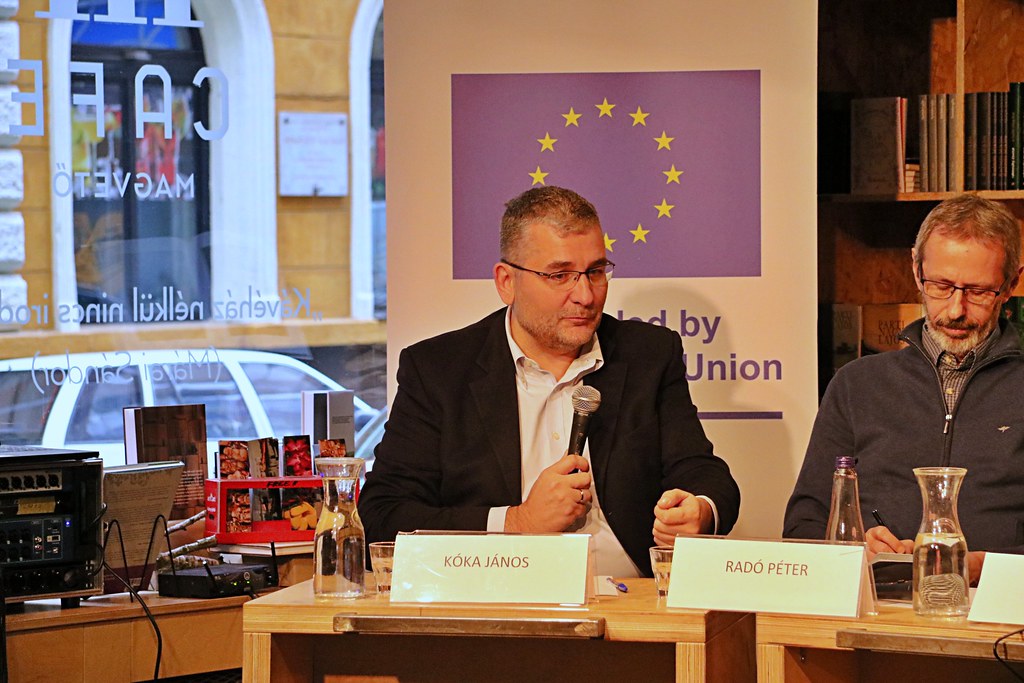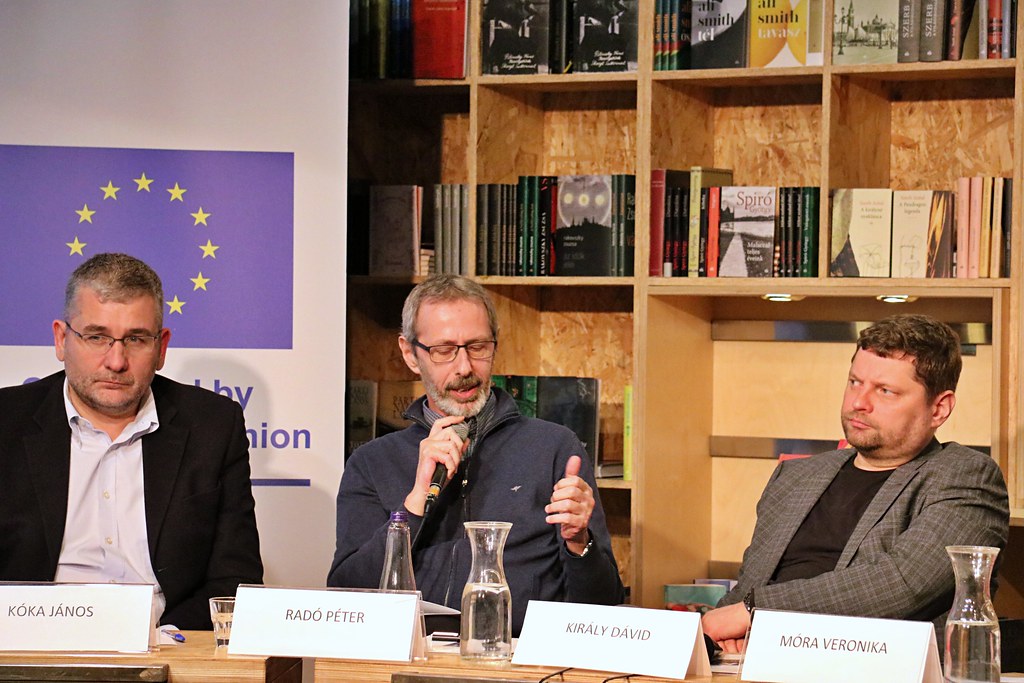

The Republican Institute held its season opener conference in January 2023 with the title „Cap for every cold price?!” about the limits of state intervention in economic policy.
The first round table discussion started with a discussion on the economic policy implemented during the regime change. According to András Schiffer, lawyer and former LMP member of parliament, the extreme identification of capitalism with the market and the socialist dictatorship with the state was a mistake in the 1990s. He said this misapprehension led to the "slavish pattern following", excessive privatization, and the abandonment of the state's community functions. He believes the country needs an efficient and powerful state that can control capital.
Bálint Magyar, Former SZDSZ Education Minister did not think the market liberalization of the regime change was excessive, as the country "thirsted" for free competition after the planned economy. In his view, it was primarily the public law framework established at the time that led to the current system of government, which can be compared to a criminal organization.
Political scientist and university lecturer Viktor Kiss stressed that it is not enough to describe the Orbán regime as a criminal organization without ideology. He defined the Orbán regime as a centralized modernization state, which was created as a counter-pole to the neoliberal era.
Mária Zita Petsching economist at Pénzügykutató Zrt. described the system as a "one-man show", which is not about good governance but about winning elections. She cited "the over-extension of the state" as the reason for the Hungarian economy's lagging.
In the second panel, participants came from different policy areas.
János Kóka, former Free Democrat Minister of Economy and Transport and President of Doktor24 Medicina Zrt, said in his introduction that the Hungarian health sector is struggling with funding problems. Summing up the state of health of Hungarians, he stressed the inadequacy of primary care and prevention, which forces many people into private care. However, he said that private health care can only works complementary, for example, it is largely inadequate for emergency care.
Education researcher Péter Radó said the Hungarian government has dismantled public policy and it is suffering from a role imbalance in education. He talked about education as a caste system, because family and ethnic background determine academic outcomes from an early age. He cited centralization and disparate and unincentivized funding as the main background reasons.
Dávid Király, head of the Budapest Workshop of the Republikon Institute, spoke about the changing model of urban development, which has seen private companies getting involved in service provision.
The director of the Ökotárs Foundation Veronika Móra described the ideal relationship between the civil sector and the state as some kind of partnership that is neither too obstructive nor too interventionist. According to her, the state has withdrawn from certain areas, such as the integration of the poor or the romas, which NGOs are forced to fill independently.
Csaba Nemes, a climate policy expert and former head of the department at the Hungarian Energy and Public Utilities Regulatory Office, assessed Hungary's environmental status as average in the European Union and marked air pollution as the biggest problem. He sees the main task of the state as to remedy market failures, enforce subsidiarity and cooperate internationally.
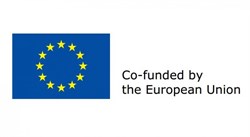
Co-founded by the Europen Union








